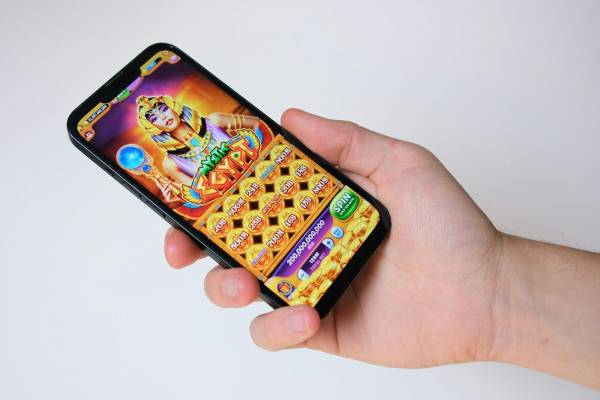Is Mobile Gambling Killing the Desktop Casino?
Over the last decade, gambling has followed the rest of the internet into the palm of our hands. Gambling used to be a desktop-first experience, but now it’s shifted to mobile as phones and tablets have grown more powerful, faster, and easier to use. It’s so convenient to use your phone to play from anywhere that it’s changed how people interact with casino games. Yet some players and operators still cling to the desktop experience. So, is mobile gambling just the new normal, or is it replacing desktops altogether?
The Numbers Don’t Lie — Mobile Is Winning
The shift to mobile isn’t just hype. Most online casinos now report that well over half of their traffic comes from mobile devices. In some cases, it's more than 75%. The reasons are clear: fast-loading apps, better payment integration, and games that run smoothly even on mid-range phones.
With this shift, newer platforms are changing how they approach design and performance. Sites like newsweepcasinos.com, which review sweepstakes and social casinos for US-based players, often highlight mobile responsiveness as a key feature when comparing casinos. They focus on how smoothly games perform on Android and iOS, how touch-friendly interfaces are, and whether mobile bonuses stack up to their desktop counterparts.
These mobile-first comparisons aren’t just about game quality. They highlight the reality that mobile play is now the default expectation for many users. It’s no longer an extra feature. It’s the main experience.
What Players Gain from Going Mobile
The biggest draw is freedom. With mobile access, players can spin the reels while waiting for coffee, make a bet during a train ride, or check their poker hand while watching TV. That much convenience is hard to ignore, especially as the majority of people always have their phones handy.
Mobile apps and sites also offer smoother transactions. Whether you're depositing with PayPal, using Apple Pay, or tapping through Google Pay, the process is often quicker than on a desktop. Casinos know that friction kills engagement, so the mobile experience has been built around speed and simplicity.
Push notifications are another powerful tool on mobile. Players get real-time alerts on their phones for bonuses, tournaments, or personal offers. These instant updates help keep users coming back without needing to log in and check manually, like they would on a PC.
Where the Desktop Still Holds Its Ground
Despite mobile’s rapid rise, desktops aren’t entirely out of the picture. They still offer some benefits that mobile can’t quite match. At least not yet.
Larger screens are a clear plus. Complex games like live dealer roulette or poker with multi-table views feel less cramped and easier to manage with more screen real estate. The desktop interface also lends itself better to long sessions. Players who like to track statistics, run software tools, or even just enjoy the full graphics experience still prefer using a computer.
Desktop casinos can also handle more simultaneous tasks. For example, someone streaming a Twitch session while playing or running a strategy guide in the background will find that much easier on a computer.
While mobile has caught up in game count, not every title gets optimized for small screens. Some older or high-performance games still run better on PCs.
What Operators Are Doing About It
Online casinos are adjusting their priorities based on how people play. Many now start with mobile in mind when building new games or designing platforms. There’s a focus on vertical screen layouts, one-touch controls, and fast-loading pages.
That doesn’t mean desktop is forgotten. Several top-tier developers continue to release desktop versions with full features, knowing there’s still a loyal group of players who won’t give up their mouse and keyboard just yet.
Some casinos are also embracing hybrid models, where they offer progressive web apps (PWAs) that work equally well across devices. These allow players to switch from desktop to phone without losing their place in the game or re-entering details. This focus is about keeping both groups happy without doubling development time.
Are Certain Games Driving the Shift?
Slots are the clear leader when it comes to mobile play. They require minimal screen space, are easy to start and stop, and don’t demand long-term concentration. Casual players, who now make up a growing slice of the online gambling market, love these types of games.
Sports betting has also gone mobile in a big way. Whether it’s live odds during a football match or last-minute tennis wagers, bettors want speed and flexibility, something mobile handle better than desktops.
On the other hand, high-stakes poker and more strategic games still lean desktop-heavy. These appeal to more dedicated players who prefer a stable setup with more control.
Mobile’s One Weak Spot: Control and Regulation
While mobile is taking over, it comes with a challenge: keeping responsible gambling tools front and center. On desktop, it’s easier to present session timers, betting history, and support options all on one screen. Mobile designs, which are often minimal and focused on speed, can make those features harder to access.
Some regulators are starting to pay attention to this problem. They’re pushing for mobile-friendly versions of the same tools that exist on desktop platforms, like one-click limits and visible self-exclusion options. As mobile gambling continues to mature, keeping it safe will be just as important as keeping it fun.
So, Is the Desktop Casino Dying?
Not quite, but it’s definitely shrinking. The way people gamble online is changing, and mobile is leading the charge. Younger users who grew up on smartphones may never even open a desktop site. For them, casino apps and mobile browsers are the only gambling experience they know.
That doesn’t mean everyone is ready to abandon desktops. For loyal players who want more control, sharper graphics, or a more immersive setup, the PC still has a role. Developers and operators seem to know this, too, which is why desktop support hasn’t disappeared entirely. In the short term, we’re likely to see both platforms co-exist, but it’s mobile that’s driving the future.














